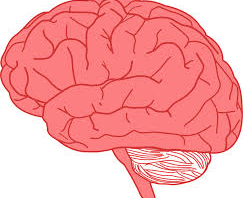Concordia has five goals for liberal learning:
- Instill a love for learning
- Develop foundational skills and transferable intellectual capacities
- Develop an understanding of disciplinary and intercultural perspectives and their connections
- Cultivate an examined cultural, ethical, physical, and spiritual self-understanding
- Encourage responsible participation in the world
Walking in on the first day to Dr. Mach’s neurochemistry course, I was quite nervous. First, she let us know that there will be a lot of independent work and what we learn outside of class needs to be spoken on in class. We all were a team, benefitting one another even literally like when we did partner teaching on Wednesdays. Second, this is my capstone class, and with that, it should essentially encompass everything I have learned here at my four years are Concordia. With that, I want to briefly mention how each of the five goals Concordia has for liberal learning were met in my capstone experience.
Instill a love for learning
I have no doubt in my mind Concordia has instilled a love for learning inside of me. This goes back even to my freshman year, but this neurochemistry course really was the cap to all of it. This class wasn’t the normal class you can take at Concordia, it wasn’t even that similar necessarily even compared to other science courses. This class was treated as a job, attendance was a must, you get evaluated twice, and you don’t really have “true” homework. That is where the love for learning comes into play because I throughout my four years and especially in this course, I only keep wanting to gain knowledge especially in my area of study, but even beyond that in other areas of study. I simply love to learn.
Develop foundational kills and transferable intellectual capacities
Dr. Mach was our professor, and she always had great knowledge to spread and help break the ice when needed because as she stated in the beginning of the course, a lot of work and knowledge earned would come from yourself. I gained some skills over time, especially how to present information to one other person in a short but sweet manor but at a 400-level college course. I would also argue I gained a higher level of critical thinking because some of the articles we read in class were very difficult and on Mondays we had to brainstorm and basically pick apart primary research articles—truly trying to understand what the science was, how it was done, and what this means for neuroscience now and the future.
Develop an understanding of disciplinary and intercultural perspectives and their connections
This class wasn’t just neuroscience students, like me. For the most part, all of us had a science type of major or area of focus, but we even gain perspectives and connections through the social majors. We did a combined project with them which was done outside of class to impact our local community in some way. Our group created an Alzheimer’s prevention and information panel discussion in Fargo back in November. Throughout the semester, I gained a better understanding of how people think and why they think the way they do. As scientists, we always like to be right and usually opinions are held strong, but when it comes to neuroscience, there isn’t one care for one neurological disease. And I would argue our whole class sees how much we and the future generations need to work together and ignore who is right first or wrong and start to work and cure some of the most dreaded diseases known to man.
Cultivate an examined cultural, ethical, physical, and spiritual self-understanding
Every week was a different research article with a different disease or disorder, and with that came multiple opinions. For example, when we read on the endocannabinoid system and marijuana, some of us had completely different views. Whether it’s your cultural, ethical, physical or your spiritual views, we all weren’t the same and that caused some havoc but also it generated great discussion. It opened up critical thinking at the molecular level of these diseases, but also a broader view and maybe how society or science should be handling some certain situations with law or health.
Encourage responsible participation in the world
I can’t wait to take my knowledge and energy in the classroom and apply it to the real world. Don’t get me wrong, I like college and especially Concordia, but I am ready to move on to bigger and better things and that’s all thanks to Concordia. Beyond my neuroscience, I am excited to work on being more sustainable as well as spread the knowledge of climate change because I believe that is one the most important issues to date and many people still today don’t understand its real or they deny it and that would be very irresponsible for us now to ignore it and let the future generations deal with it because scientists today are saying we are already too late in combating this real crisis.
